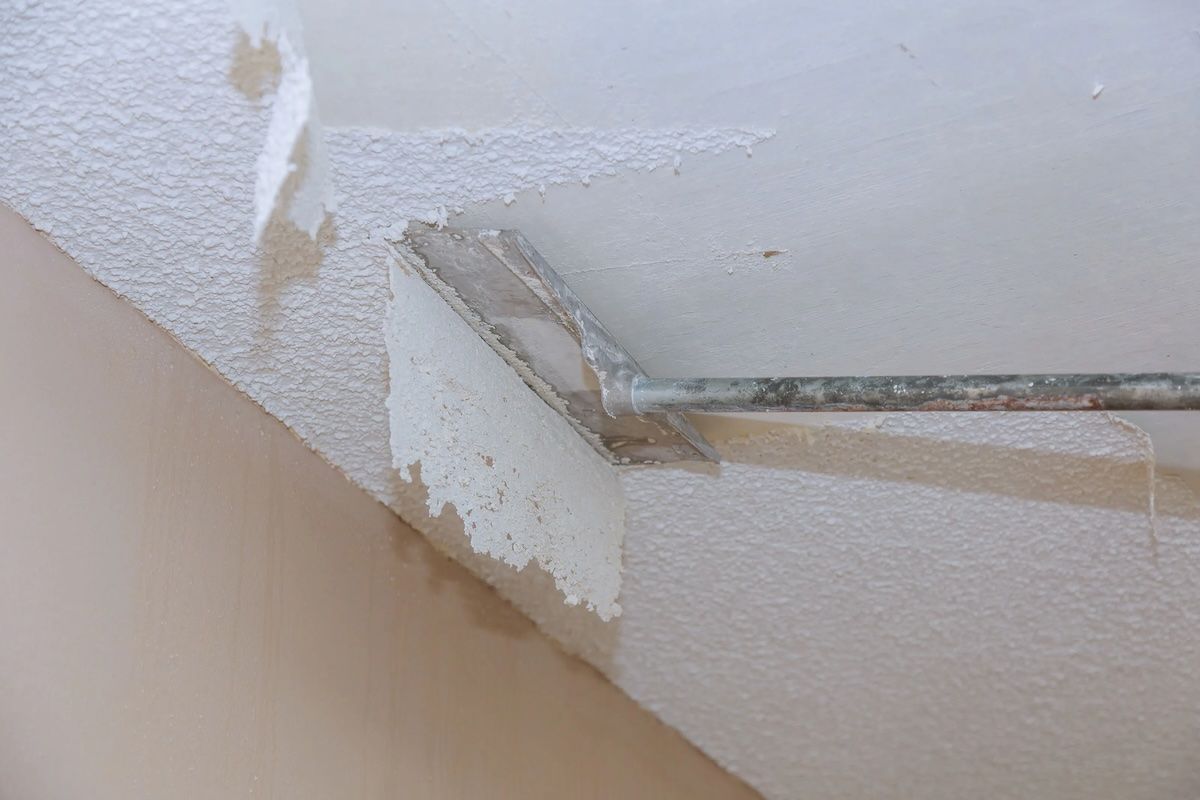- 1. Find a Real Estate Agent Who Understands Your Needs
- 2. Assess Your Financial Situation
- 3. Explore Financial Assistance Programs for Single Moms
- 4. Build or Improve Your Credit Score
- 5. Determine What Type of Home You Need
- 6. Budget for More Than the Down Payment
- 7. Take Advantage of First-Time Homebuyer Loan Programs
- Homeownership is Possible With Planning and Support
How to Buy a House as a Single Mom
Life as a single mom requires a delicate financial balance as you ensure the needs of your kids and yourself are thoroughly met. However, that doesn’t mean homeownership is out of reach. Studies by LendingTree have found that single women own more homes than single men – 2.71 million more homes to be exact. The homeownership rate for single moms is around 34% with more single mothers looking to buy.
You can take steps today as a single mom to become a homeowner soon. Follow these steps to learn about your financial opportunities and available resources while preparing the right paperwork to start the mortgage process.
Here’s how to buy a house as a single mom.
1. Find a Real Estate Agent Who Understands Your Needs
The first step is to find a real estate agent who can provide honest advice and guide you through each step of the home-buying process. You should never feel coerced into working with a particular Realtor and your agent should never push you to make decisions you aren’t comfortable with.
During this process, you might decide that you want to wait a few months before entering the buying market, and a quality real estate agent will accept that.
We recommend interviewing at least three real estate professionals before hiring the best one, This will allow you to see how Realtors approach the market and help you find a strong personality fit for your needs.
Use our recommended real estate agent interview questions as a good starting point. You are looking for a Realtor who can help in the following ways:
- Identifying safe, family-friendly neighborhoods in your ideal school districts.
- Finding homes within your budget that align with your preferences.
- Helping you navigate the complexities of home-buying, including paperwork, negotiations, and financial aspects.
- Connecting you with relevant professionals, like mortgage lenders, appraisers, and insurance providers in your area.
FastExpert is the best place to find real estate agents in your area. You can read in-depth profiles and get to know Realtors on personal and professional levels before you interview them. You also have full control over who you connect with – we will never sell your information. Start here to learn about the top contenders in your area and who they work with.
2. Assess Your Financial Situation
The next step is to carefully review your finances and set a budget for your ideal home. Your mortgage underwriter will inspect every aspect of your finances when approving your home loan application, so reviewing your monetary situation beforehand can help you avoid unwanted surprises.
One of the most common questions in homebuying is, “How much house can I afford?” While everyone’s situation is different, you can run a few basic calculations to create a budget.
- Calculate your total monthly income, including your salary, child support payments, and any other documentable payments you receive.
- Add up your total monthly costs, including student loans, school fees, and monthly childcare agreements.
- Find your debt-to-income (DTI) ratio by dividing your debt by your income. For example, if you have $2,000 in monthly expenses and earn $6,000 each month, then your DTI is 33%.
- Find a realistic home price based on your DTI. Most lenders want your DTI to fall below 36% but the Federal Housing Administration (FHA) can allow a DTI up to 50% in some cases.
Multiple online calculators can walk you through this process and help you set a budget for your house. It requires a little backward math where you start with your monthly payment and estimate how much house you can afford based on your income. However, following these steps can help you set a reasonable budget before you start looking at homes.
You can also work with a financial advisor to review your current situation and any opportunities to improve it. They might recommend saving for a larger down payment or improving your credit so you get more favorable rates when you start applying for mortgages.
3. Explore Financial Assistance Programs for Single Moms
There are multiple resources designed to make homeownership possible even if you don’t have a large down payment. Here are a few loan programs that can give you reasonable monthly payments and even assist with closing costs.
- FHA loans are designed to support first-time homebuyers. They have low down payment requirements and favorable interest rates, leading to low monthly payments.
- USDA loans are designed to support homeownership in rural areas. Some of these loans require no down payment, making homeownership easier. Check the eligibility map to see which regions qualify for USDA loans.
- VA loans through the Department of Veteran Affairs are designed to support active-duty military members and veterans. You may qualify for a VA loan if you have served or currently serve.
- Various HUD programs, such as Good Neighbor Next Door, are designed to help low-income borrowers who want to revitalize their communities. You may qualify for one of these loans or grants.
- There are also various state-level assistance programs for single parents to make purchasing property easier.
Research what’s available in your state, county, or city. You might be able to work with non-profit organizations that provide downpayment support or economic development groups that offer housing grants. Many of these programs can also be stacked on top of each other. For example, you may qualify for an FHA loan and then receive a local grant that helps with closing costs.
4. Build or Improve Your Credit Score
Saving for a down payment can take longer than you want, especially if you are eager to become a homeowner within the next year. Along with building your savings, take steps to improve your credit.
A good credit score can help you get favorable interest rates, making your monthly payments more reasonable. You might find that you can afford a larger house or a home in a more desirable neighborhood because of your improved credit.
Here are a few ways you can improve your credit while also building healthy financial habits that can last.
- Always make your payments on time. Even if you can only make the minimum payment, something is better than nothing. Making on-time payments can build a favorable credit history.
- Pay down your debt. Do your best to pay down your debt, even if it means saving less for a down payment. This is also one way to reduce your DTI.
- Consolidate your debt. Consider combining your debt into one manageable monthly payment instead of juggling multiple lines of credit.
- Check your credit scores for errors. Make sure there aren’t any false issues that are harming your credit.
- Ask to increase your credit limits. Some credit companies will allow this if you have a strong credit history. It will show that you are using a smaller portion of the credit that’s allowed.
While you are building your credit score, do not take out new lines of credit. You should also avoid making major purchases. Most loan programs will review your credit history and question any sudden credit changes or potential sources of instability.
5. Determine What Type of Home You Need
Entering the buyer’s market requires a delicate balance between identifying how much house you can afford and finding properties that meet your needs. As you start reviewing your finances and setting a budget, consider whether your plan is reasonable compared to properties in your area.
As of Q3 2024, the median home price in the United States is $420,400. While houses might be more affordable in your area, you need a realistic picture of what you can buy. Here are a few factors to review.
- Identify safe neighborhoods and areas with good schools. Review both the current schools and future schools they will attend – up to the high school level. You can change everything about a house except its location.
- Evaluate the number of bedrooms and bathrooms you need. Consider the needs of your children now and five years from now. You might want to expand your family or your kids might need their own rooms and bathrooms.
- Determine what size house you need. Decide whether your family can thrive in a smaller bungalow or if you will need more space to spread out.
- Map out the proximity to work, daycare, and family support. Long or difficult commutes can be exhausting. Decide how far you are willing to travel each day.
- Pick out essential amenities. Many families seek out houses with large, fenced-in backyards to create safe play areas for kids. Know what house factors are essential for your search.
Almost every homebuyer struggles to find a point of balance between their ideal home and their budget. Use the above criteria to identify what is most important to you. Once you set your priorities, you can discover opportunities to compromise to maximize your options and happiness once you move in.
6. Budget for More Than the Down Payment
Many potential buyers focus on building a large downpayment before they enter the real estate market. While a large down payment can certainly make homes more affordable (and eliminate the need for mortgage insurance), you also don’t want to be “house-rich but cash-poor.” This means you own a home but don’t have a lot of cash available to cover other costs.
While building your down payment, simultaneously try to set aside money for a nest egg. This is an emergency fund that can be accessed when you need to cover unexpected expenses. For example, you might move into your beautiful new house and discover a significant plumbing issue that needs to be addressed immediately. If you don’t have extra money saved, this could put you into debt.
The average down payment isn’t 20% anymore. In 2024, most buyers only put 13.4% down. Offering a lower down payment could help you create an emergency fund to support your house or your kids.
While you are developing an emergency fund, make sure you set aside money for other costs associated with the buying process. These include inspection and appraisal costs, moving expenses, closing costs, property taxes, homeowners insurance, and maintenance and repair bills. You might want to create a moving fund that you pull directly from to make this process easier. One of the benefits of working with a financial advisor as you start buying is that they can help you get in the best possible position to successfully move while minimizing the amount of debt you accrue.
7. Take Advantage of First-Time Homebuyer Loan Programs
If you are still researching your options to become a homeowner, look into specific payment assistance programs and first-time homeowner programs in your area. You might secure an interest-free loan for a period of time or get help building up your down payment. Here are a few programs to ask about:
- Loans with reduced interest rates. A lower interest rate means a larger percentage of your payment goes toward the principal. As a result, you may be able to afford more in your home search.
- Loans with lower down payment requirements. Some programs support buyers who have smaller down payments, allowing them to become homeowners sooner.
- Down payment assistance grants. Some organizations provide incentives to buy in certain areas through grants and other matching programs.
- Tax benefits or credits. You may be able to save on your taxes by participating in various programs.
A great place to start when searching for programs and incentives is the state housing authority. You can also look for resources on national and local levels. Some organizations specialize in researching housing incentives for local residents, so see if there are any groups like this in your area.
Many communities also offer free first-time homebuyer classes to teach you about this process. You don’t need to be a real estate expert, but you should be able to enter the market with confidence and clarity about the home-buying process.
Homeownership is Possible With Planning and Support
You can become a homeowner even if you are raising a family as a single mom. Take a close look at your finances and don’t hide from any debt or unwanted bills. Understand the opportunities available, which include down payment assistance and affordable housing loans. With the right financial planning, you can set a budget and start making offers on homes you can afford.
Take the first step and call local real estate agents to discuss buying a home. Find a Realtor who you can trust and who is excited to help you become a homeowner. No matter your current financial situation, there are opportunities to improve and own a home someday. The right real estate professional can help.
Try FastExpert today and explore local agents. You can find a partner who will stand by you every step of the way.





